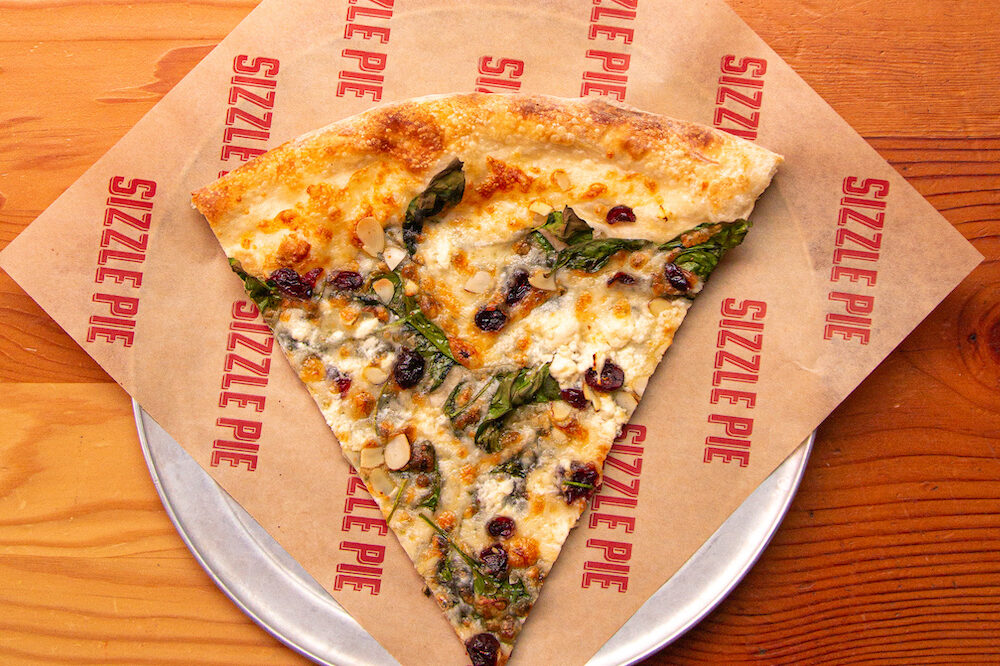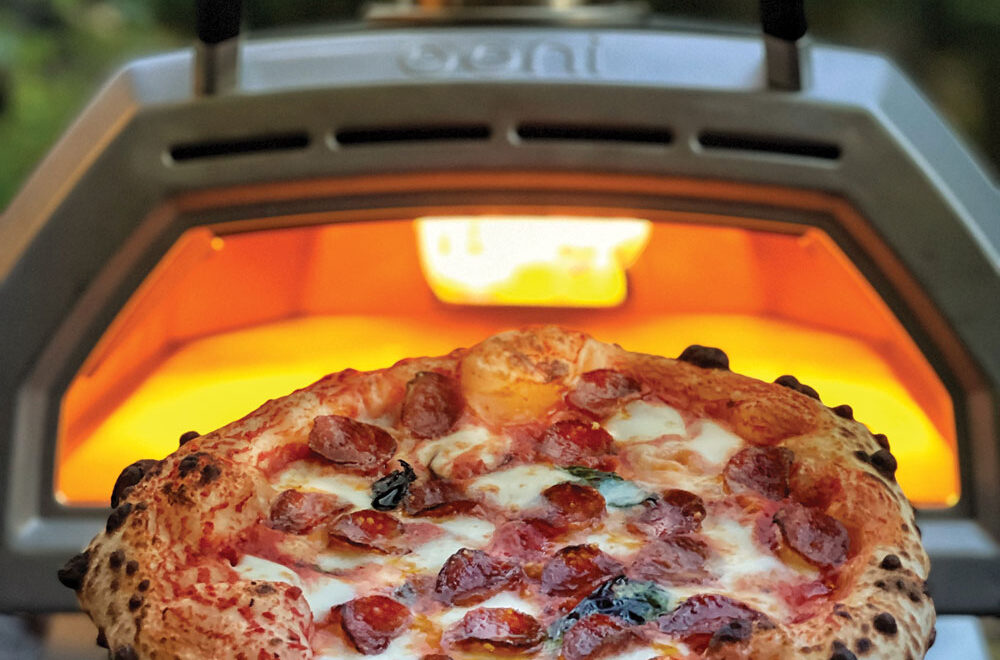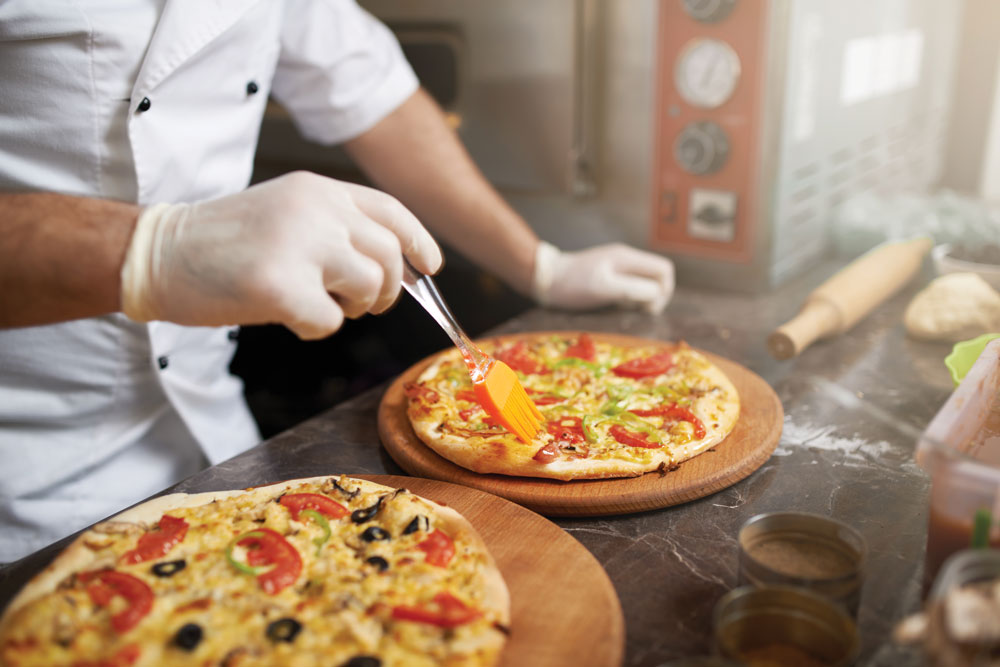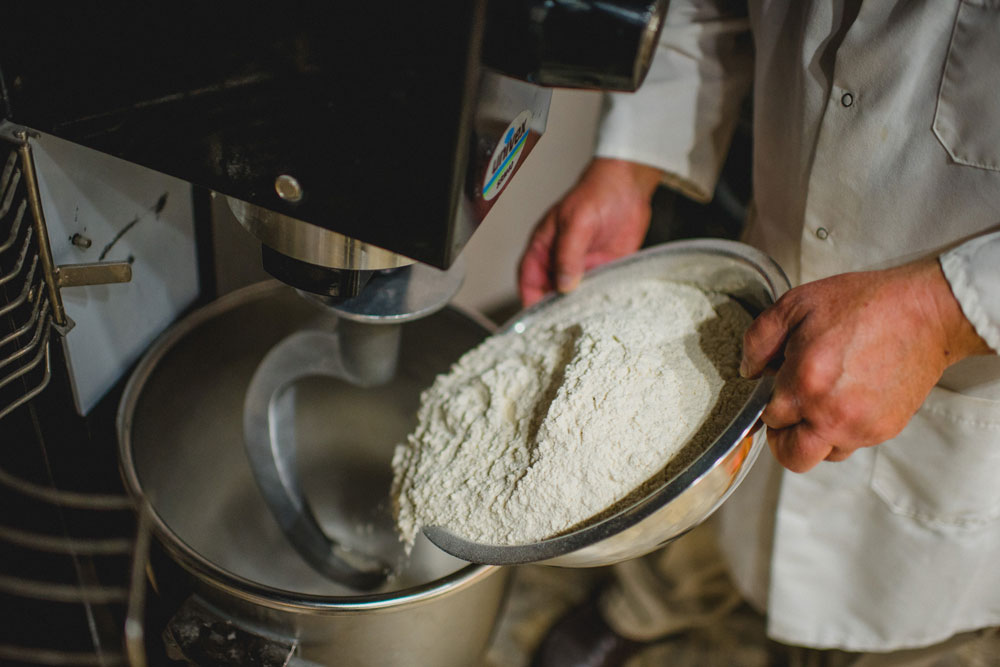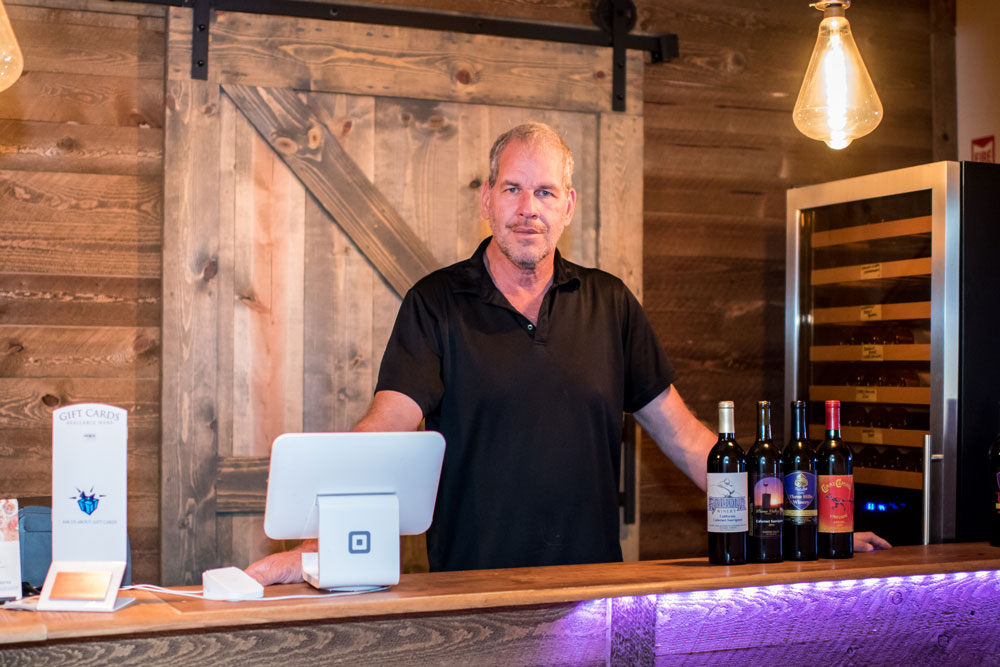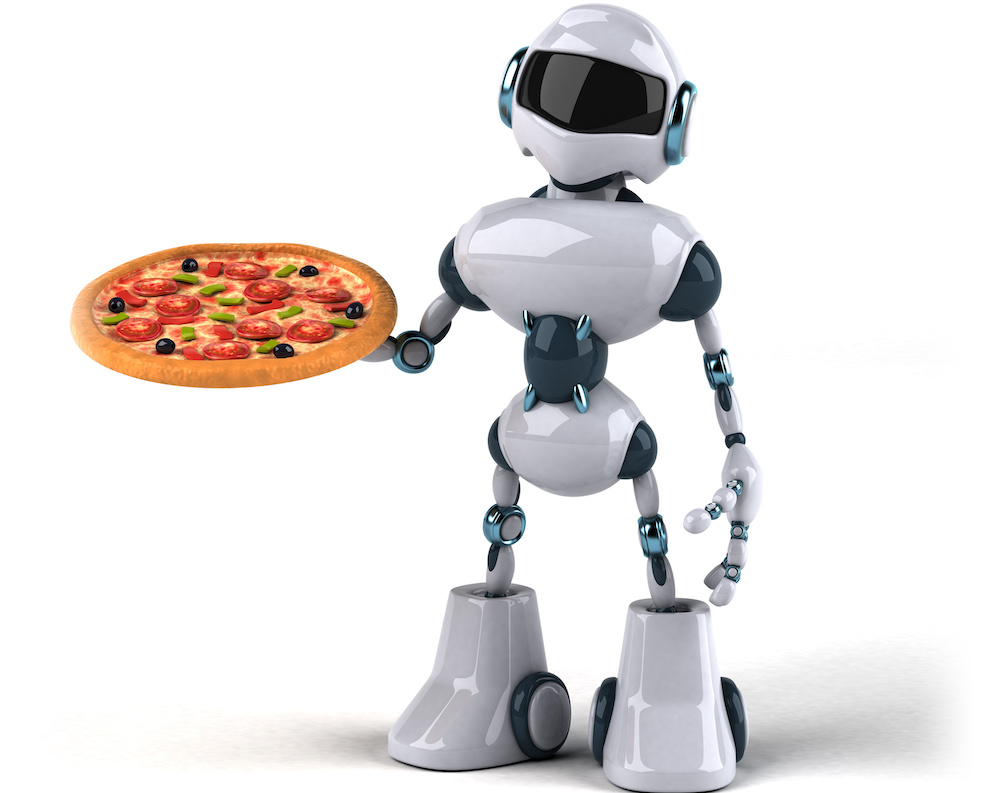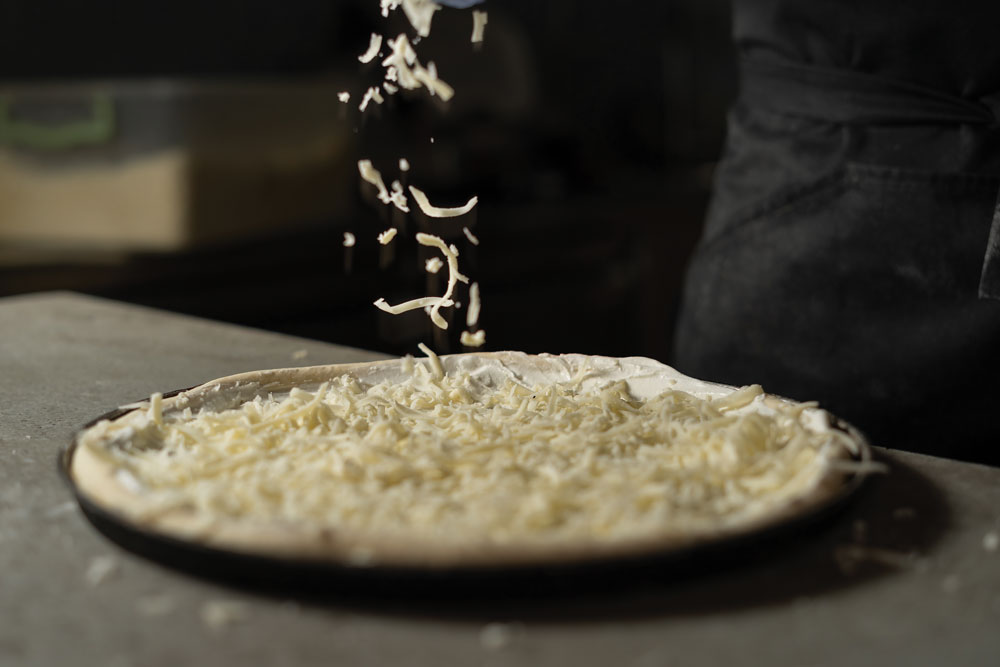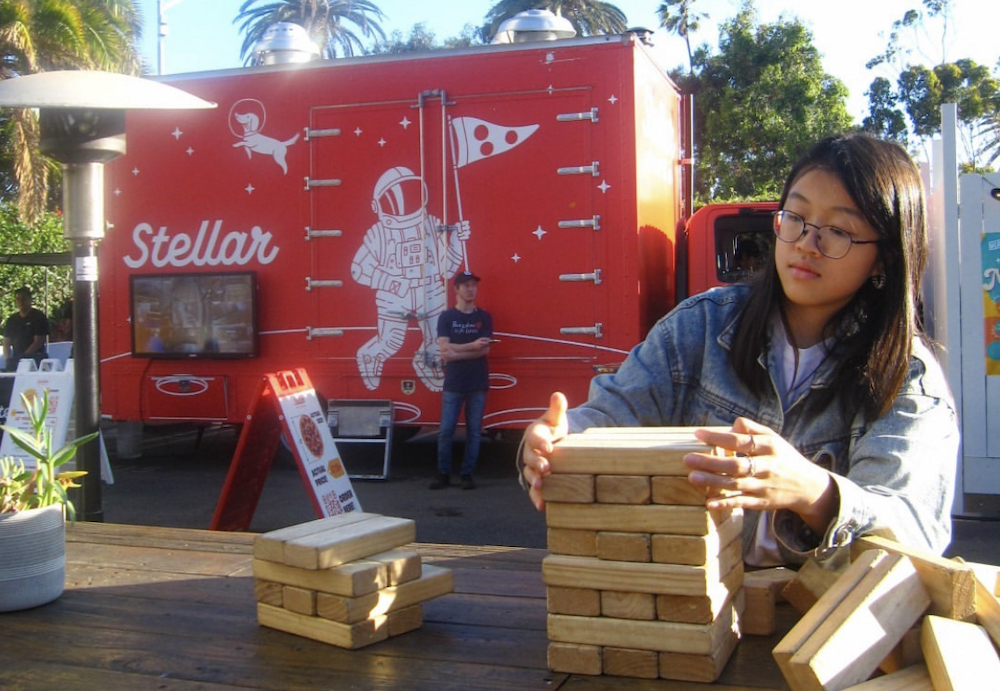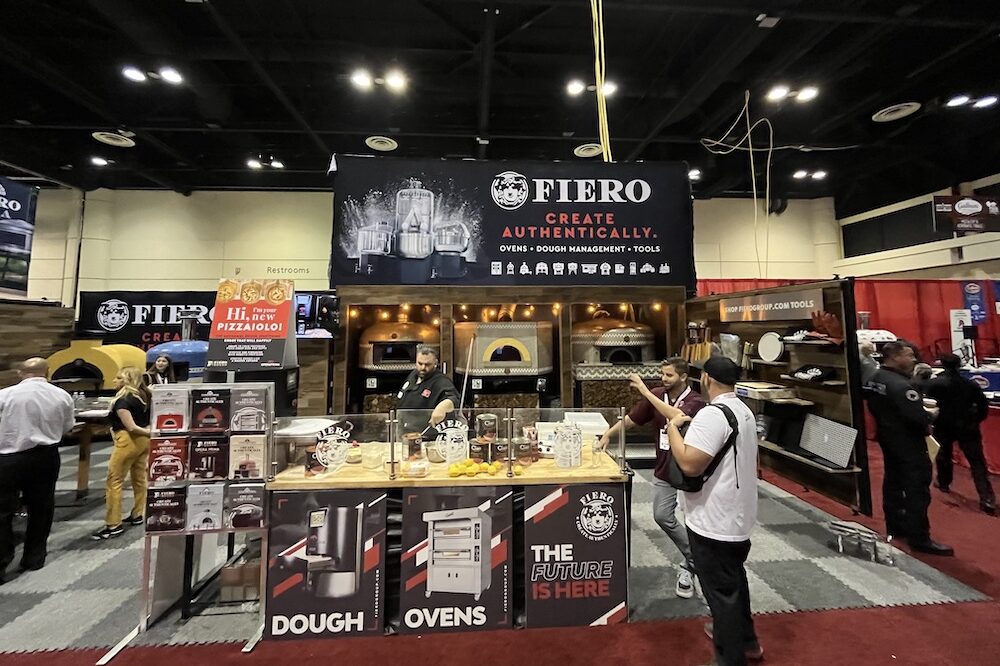- For some operators, the quest for the perfect water results from wanting to perfectly copy a specific region’s H20, often with the aim of creating a “true” New York-style product.
- “I know some people say it’s not true that water makes a difference, but when you’re making a bread product, those few ingredients are critical,” says Tony D’Aiuto of Stella Hospitality Group.
- Adam Greenberg of Potomac Pizza worked with a manufacturer to design a custom water filtration system to his exact specifications.
Related: How water affects pizza dough
Editor’s note: This article was written prior to the death of longtime PMQ columnist Tom Lehmann in late 2020 and includes quotes from the Dough Doctor.
In a pizzeria setting, water is a crucial ingredient, thanks to its substantial presence in dough making. But it can also greatly affect the taste of beverages—think iced tea and coffee, plus ice production for drinks like sodas. “Water filtration can mean different things for different applications,” says Tom “The Dough Doctor” Lehmann, a pizza industry consultant based in Manhattan, Kansas. “Systems may help remove any ‘off’ flavors, alter mineral content or remove minerals altogether.”
For some operators, the quest for the perfect water results from wanting to perfectly copy a specific region’s H20, often with the aim of creating a “true” New York-style product. “I couldn’t look at a New Yorker and say I’m serving New York-style pizza,” says Adam Greenberg, owner of Bagels ’n Grinds and Potomac Pizza, based in Potomac, Maryland, with eight locations among his two concepts. “When we went into the bagel business nine years ago, we wanted to be able to say, ‘This is as good as or better than anything you’ll get in New York.’”
Basic Filtering Systems
Although water filtration systems can be designed to filter out sedimentation, most pizzerias have different reasons for installing them, Lehmann explains. Perhaps the water has a high iron content that needs to be addressed or a funky flavor or odor that’s reminiscent of swampland settings, which can occur when water sits in pipes for too long. Activated carbon filters can remove taste- and scent-oriented issues, but those aren’t a big problem for dough making. “Because dough is mixed and heated, the processing drives off aromas,” Lehmann says. “But for water that is not processed, like in ice machines or for coffee, carbon filters will help.”

The quality of your city’s water can have an effect, positive or negative, on the taste of your pizza dough.
A second type of activated carbon filter is used to soften water—in other words, removing some of the minerals present, which helps maintain the longevity of your equipment and makes cleaning easier, thanks to less mineral buildup over time. However, Lehmann warns, dough doesn’t benefit from soft water—in fact, minerals are useful in the recipe. If you choose a water softening system, he recommends installing a tap to disperse water before the softening process and using that water for dough production. “These filters are low-cost and trap particles as small as five microns,” Lehmann explains. “Essentially, they polish the water.”
Related: Blind taste test convinces food critic that New York water makes better pizza
A third type of system uses reverse osmosis and can be expensive, requiring an investment of $10,000 or more. Here, tap water sheds everything and emerges perfectly pure, without minerals. “Unless you have poisonous water, that can be overkill,” Lehmann says. “Reverse-osmosis water isn’t good for dough, as the lack of minerals, like calcium and magnesium, creates a very slack dough. But you can buy calcium sulfate to restore the minerals and compensate for what you’re taking out.” These systems may have other applications, however, like creating clean-tasting ice or water for beverages like coffee and tea.

Tony D’Aiuto, co-founder and operating partner of Stella Hospitality Group
Regional Replication
In addition to these basics, some systems are designed to replicate a region’s tap water, with New York City’s water proving highly desirable for those making pizza outside of the area. Tony D’Aiuto, co-founder and operating partner of Stella Hospitality Group (which has five locations, including the Neapolitan-style concept LBK Los Angeles), decided that for his first West Coast location, he would do his best to copy the pies at his New York-area pizzerias.
At first, he bought bottled water, refusing to use the tap water in California—but both the financial investment and storage needed were far from ideal. When he found a system designed to replicate the pH and mineral content of New York water, he eagerly jumped on board. “New York has the best and most balanced water in the country,” D’Aiuto says. “I know some people say it’s not true that water makes a difference, but when you’re making a bread product, those few ingredients are critical—and we believed the initial results weren’t the same as in our other pizzerias.”
D’Aiuto says the water system lends more crispiness and better taste and texture to the finished product. But he also points out that his dough making process requires a slow fermentation over three to four days, so he believes the water is more important than it may be in other pizzerias. “Seeing the machine was actually one reason we wanted to open in Los Angeles—a determining factor,” D’Aiuto says. “We didn’t like the quality of bread products in L.A., and our dough is the crispiest you’ll find in the city.”
Video: How to make Detroit-style pizza dough
Greenberg, too, was eager to install a water filtration system that could perform for his New York-style bagel and coffee business, but his process was much more complicated. After extensive research, he worked with a manufacturer to create a machine for his exact specifications. “New York water comes through the Catskills, picking up elements from the granite, so we purify, soften and remineralize our water to match that of New York City,” Greenberg explains. “There was no system to do it back then, so I had to create my own. I went to a reputable company, and together we worked on a system that achieved my goals.”

The water filtration system at Potomac Pizza
The process cost Greenberg a whopping $50,000. Back home, he experimented and noticed a difference in baking with both soft and hard water. He obtained samples of water from different jurisdictions in New York City. And, like D’Aiuto, he believes that the filtration system improves both the flavor and texture of his dough. But he also adjusts according to usage in his bagel shops, with three types of water on tap: For the hot water heater or for espresso, soft water is best; drip coffee requires a bit of hardness; and for crystal-clear ice, hardness is detrimental, so he uses soft filtered water. Filter changes and maintenance cost $3,000 to $4,000 annually, he said.
D’Aiuto agrees that such a water filtration system is expensive, but the company he worked with offers a financing option—and, as an alternative to buying bottled water, he knew the system would pay for itself in a couple of years. For upkeep, he sends water samples to the filtration company twice yearly for testing and changes filters when needed (with both services included in his initial investment). Plus, his regulars rave about how crispy, balanced and evenly cooked his pies emerge from the oven, even though he admits you might have to be a pizza perfectionist to tell a marked difference. “Everyone has a metric of what’s good to them, and if your product is good as it is, go for it,” D’Aiuto says. “But we think the quality of water has a profound effect on dough, and our standard of quality is met by New York water.”


